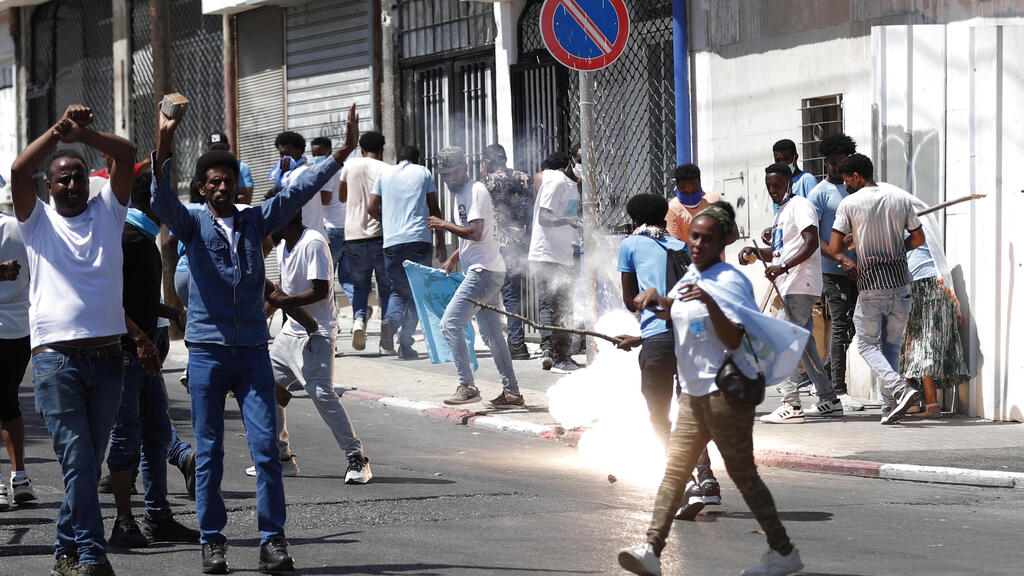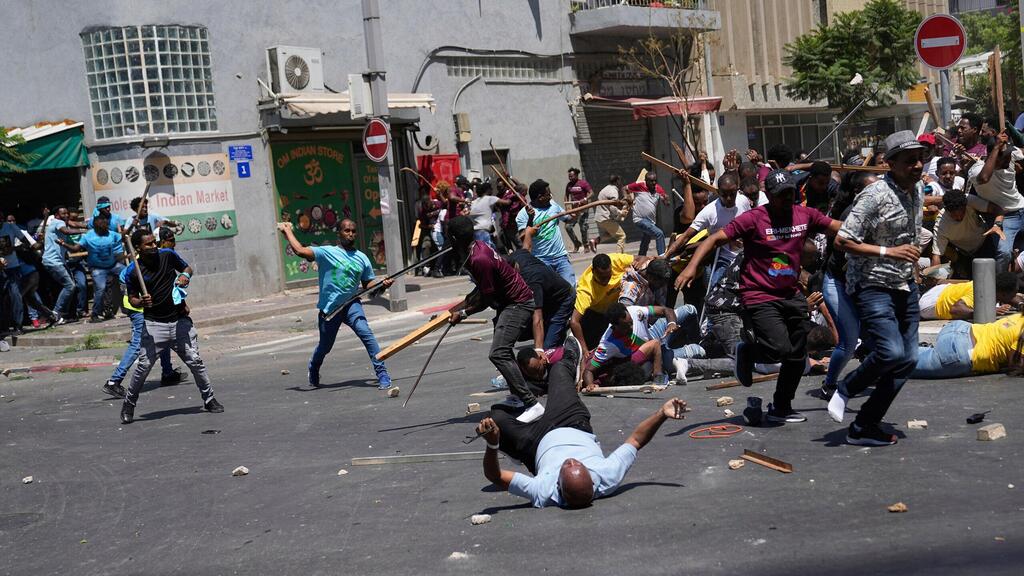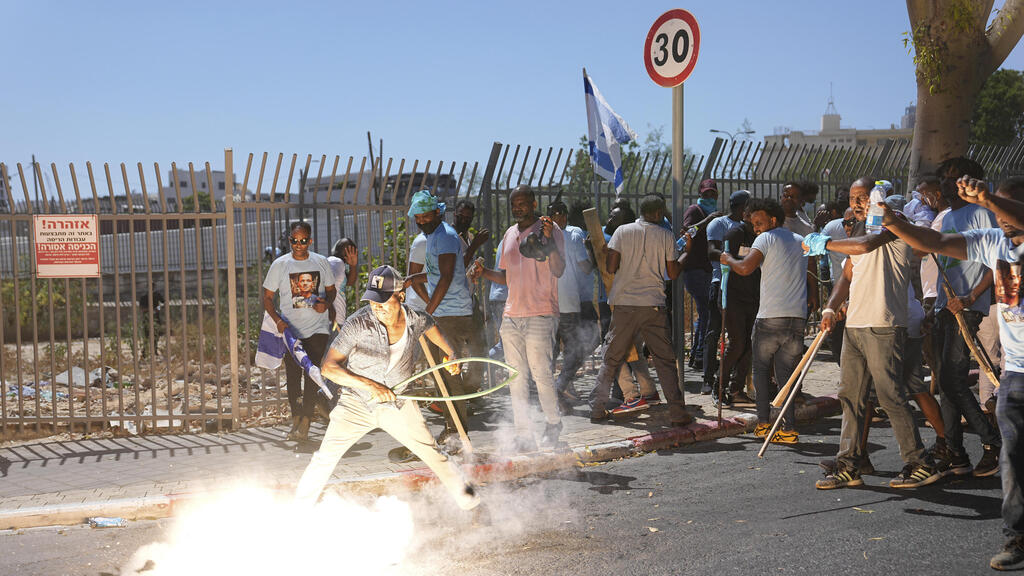Eritreans protest in Tel aviv
(צילום: דוברות המשטרה, נדב אבס)
At least 135 people were injured, some seriously on Saturday when riots broke out between supporters and opponents of the Eritrean regime in Tel Aviv. The violence was prompted by a planned celebration put on by the Eritrean government, to mark the country's independence.
More stories:
Despite warnings from leaders of the community, against possible violence if the embassy's event is allowed to take place, Israeli police and local authorities did nothing to prevent the expected clashes. "We did not expect such clashes between supporters and opponents of the Eritrean regime," police officials said but added that even if they had bared the celebration from taking place, clashes and riots would still have broken out.
Opponents of the regime wore blue Tshirts and some carried Israeli flags to symbolize their appeal to the people and government of Israel to understand their protest, they claim supporters of the government in Asmara were agents of the regime who had been spying and reporting on the community and that their families were being punished for their desertion and their views. The supporters wore red shirts to the riots.
Members of the community said that regardless of the protesters' motives, justified as they may be, their violent actions must be condemned, and that they had disrespected the law in the country that had given them shelter. There are 17,000 Eritreans living in Israel, out of the 50,000-strong migrant community. Some 2,000 left the country in the past year.
President Isaias Afwerki, 77, has led Eritrea since 1993, taking power after the country won independence from Ethiopia in a long guerrilla war. There have been no elections, there's no free media and exit visas are required. Many young people are forced into military service with no end date, human rights groups and United Nations experts say. The nation on the Horn of Africa has one of the world's worst human rights records, and the asylum-seekers fear death if they were to return.
Israel paints its African migrant community with a wide brush, as migrant workers and does not differentiate between those who escaped the Eritrean regime and others who are seeking a better life. Most arrived between 2006 and 2011, after fleeing the Eritrean dictatorship.
In 2018, Israel reached an agreement with the UNHCR to resolve the African migrant crisis, agreeing to grant temporary legal status to protected populations among the asylum seekers, some 18,000 refugees who would've remained in the country regardless. But Prime Minister Benjamin Netanyahu backed out of the agreement just hours after it was announced under pressure from his ultra-Orthodox allies who wanted all of the migrants deported, which would have been a violation of Israel's international commitments.







